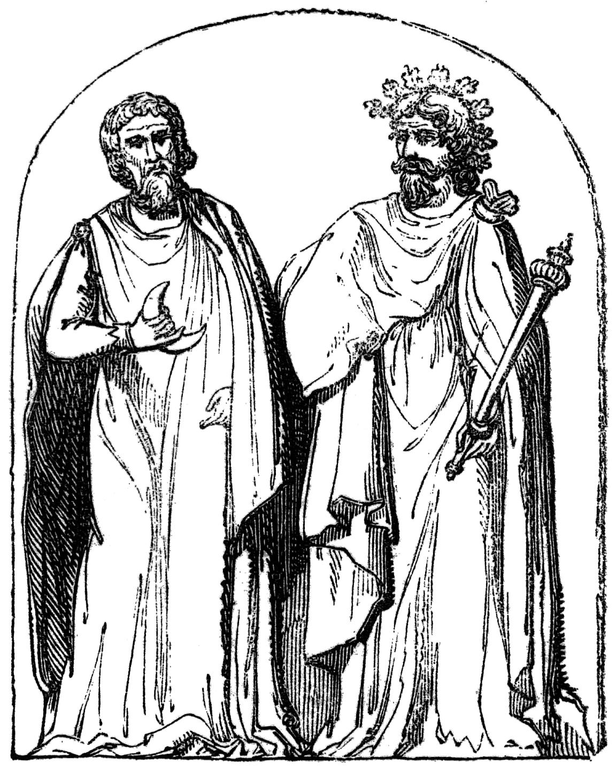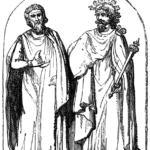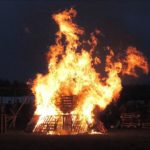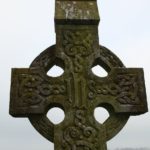The Druids were the educated/gifted class of an ancient people called the Celts (pronounced with a hard “c” like Kelts). Druids occupied a unique role in society, unlike any position that we understand today.
Background
The Celts were an Indo-European group of people who emerged from the area of present-day Bavaria and Bohemia, to settle all of Europe. They reached their peak of about 450 B.C. to 250 B.C.
They were organized according to a class system including the ordinary tribe people, the nobles, warriors and learned ones. It is this last group that includes the Druids.
The Learned Ones
This class of people attended “colleges” which trained three levels of people:
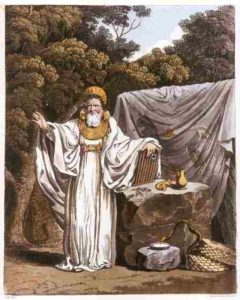 1) Ovate, whose functions are defined differently in different sources. They were healers or historians or seers
1) Ovate, whose functions are defined differently in different sources. They were healers or historians or seers
2) Bards, who were employed to praise their ruler in music and poems, plus carry on the Tales of Celtic Legends. It is from this group that we learn our most substantive knowledge about Celts and Druids. The bards lasted to the 4th and 5th centuries A.D. when their tales were recorded by Christian priests and clerics. (Though much was written about the Celts and Druids by the Romans who conquered modern France and Great Britain, this source is suspect because it was written from the point of view of the conquerors)
3) Druids, who were the priest/philosopher/ judges in the Celtic system
In these “colleges” learning was done my memorization. The learned ones never wrote anything down. Rather, theirs was an oral culture with studies lasting up to 20 years to memorize the ancient knowledge, laws and holly practices.
The Druids
It is difficult to define Druids in a few terms because their functions in Celtic society were so wide that a single word doesn’t capture the full range of their responsibilities. To understand their role, it is easiest to review the various functions they performed:
1) Repositories of Knowledge – including understanding the ancient oral wisdom, history, the gods, the legends, the laws and such.
2) Advisors – with this knowledge Druids were often employed by kings to seek their advice.
3) Judges – given their knowledge of the law, they often traveled circuits to preside over trials and the meting out of justice.
4) Priests – they often presided over religious ceremonies, supervised over sacrifices, and taught the people about the religious belief system
5) Magicians – they held the reputation of being able to perform magical practices like shapes shifting, prophesizing, and the ability to confuse and confound the enemy, and such
6) Peacemakers – it was reported that the appearance of Druids on the battlefield would lead to an instant cessation of fighting and possible negotiation
In trying to understand who the Druids were, we must realize that they were a very special class of people whose function was broad and unique, unlike any roles that we are familiar with today.

